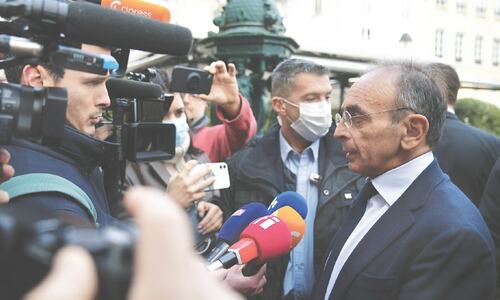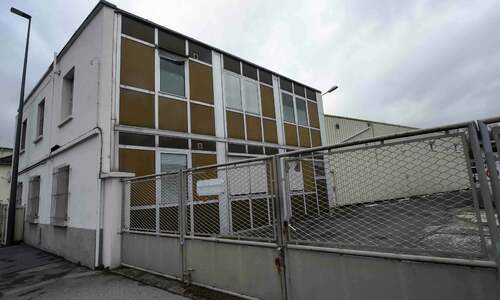NICE: The French government on Saturday forged ahead with efforts to reshape Islam in France and rid it of extremism, introducing a new body made up of clergy and laymen and women to help lead the largest Muslim community in western Europe.
With France bloodied by past Islamic extremist attacks, having hundreds of citizens who went to fight with jihadists in Syria in past years and thousands of French troops now fighting extremists in Africa, few disagree that radicalisation is a danger. But critics also see the efforts as a political ploy to lure right-wing voters to President Emmanuel Macrons centrist party ahead of April’s presidential election.
The new body, called the Forum of Islam in France, is being introduced Saturday by the French Interior Ministry. Supporters say it will keep the country and its five million Muslims safe and free of foreign influence, and ensure that Muslim practices in France adhere to the country’s cherished value of secularism in public life.
Its critics, including many Muslims who consider the religion a part of their French identity, say the government’s latest initiative is another step in an institutionalised discrimination process that holds the whole community responsible for violent attacks of a few and serves as another barrier in their public lives.
The new body will include imams, influential figures from civil society, prominent intellectuals and business leaders. All of its members are hand-picked by the government, and women will make up at least a quarter of its members, according to French media reports.
It replaces the French Council of Muslim Faith, a group set up in 2003 by former President Nicolas Sarkozy, then interior minister. The Council served as an interlocutor between the government and religious leaders. It is being dissolved this month by Macron’s government because, according to Interior Minister Gerald Darmanin, it was no longer fulfilling its role in the Muslim community and French society as it was reeling from attacks in recent years that killed hundreds.
We want to launch a revolution by putting an end to (foreign influence) on Islam, Darmanin said in a recent interview with Le Parisien daily. Islam is not a religion of foreigners in France, but a French religion that should not depend on foreign money and any authorities abroad.
In his project, Macron envisions measures like training imams in France instead of bringing them in from Turkey, Morocco or Algeria a plan many in the Muslim community approve of.
Muslims are divided over the project. Some believers visiting the Grand Mosque of Paris for Friday prayers cautiously welcomed the idea while others worry it’s going too far in trying to control their faith, or say that the government has singled out Islamic institutions but would not dare suggesting such changes to Christian ones.
Hamoud ben Bouzid, a 51-year-old Parisian, was optimistic about Macrons plan and his effort to include different voices from the Muslim community to show to the wider society its diversity. Members of the clergy don’t speak for every Muslim citizen of France, he said.
We live in a secular country so why not expand the forum and give voice to many more Muslims in France, ben Bouzid said. I would like Muslims to be heard as citizens in this country, not as Muslims. As full citizens.
Muslims in France have long complained of stigmatism in daily life, from being singled out by police for ID checks to discrimination in job searches. Whenever extremist violence hits, by foreign-born attackers or by French-born youth, France’s own Muslims come under suspicion and pressure to denounce violence.
Islam is the second religion in France, with no single leader and multiple strains represented, from moderate to Salafist with a rigorous interpretation of the religion to outright radical upstarts.
Published in Dawn, February 6th, 2022















































